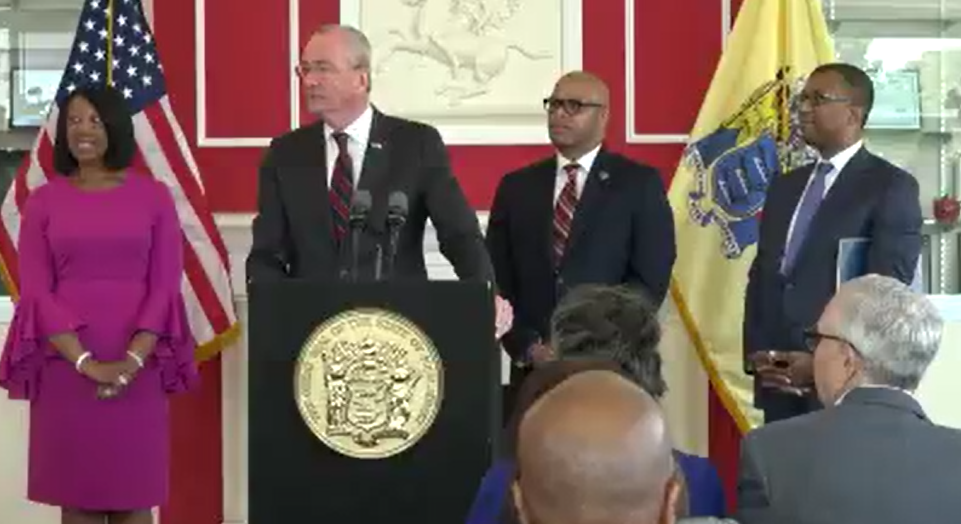Governor Murphy Announces New Jersey’s First Step Toward Free Community College

CRANFORD – Governor Phil Murphy announced today that approximately 13,000 qualifying students will be able to attend one of 13 community colleges free of tuition and educational fees in the spring semester that starts in January 2019.
All 19 of New Jersey’s community colleges applied to participate in the Community College Innovation Challenge, signaling interest and need across the state. Each one of New Jersey’s community colleges will receive a $250,000 grant for student outreach, recruitment, and support, and to build capacity for future expansion of the program. The selected pilot colleges include institutions from North, Central, and South Jersey.
“Today we are putting the dream of higher education within reach of more students and more families,” said Governor Murphy. “Making community college tuition free will help New Jersey’s young people and working adults earn post-secondary degrees to advance their careers – and it will help build the talented workforce that is the engine of our state’s economy,” Murphy added.
The Office of the Secretary of Higher Education (OSHE) and the Higher Education Student Assistance Authority (HESAA) jointly reviewed the applications and selected the following 13 community colleges where qualifying students can attend tuition- and fee-free in the spring semester of 2019: Atlantic Cape Community College; Bergen Community College; Camden County College; Cumberland County College; Hudson County Community College; Mercer County Community College; Middlesex County College; Ocean County College; Passaic County Community College; Rowan College at Gloucester County; Salem Community College; Union County College; and Warren County Community College.
Students enrolled at least half time at these 13 pilot community colleges will be eligible to receive “last-dollar” Community College Opportunity Grants (CCOG), which will cover any remaining costs of tuition and approved educational fees after applying all other financial aid grant awards to the student’s account. For the spring 2019 pilot, students coming from families with adjusted gross incomes between $0 and $45,000 will be eligible for CCOG awards. To remain eligible for the program in the future, students will be required to maintain satisfactory academic progress at their college.
“Our hope is that all 19 community colleges will benefit from learnings during this pilot phase,” said Dr. Zakiya Smith Ellis, New Jersey’s Secretary of Higher Education. “Every college submitted a unique, thoughtful, and creative application, with many good ideas for increasing access and affordability tailored to the students and communities that each college serves. Each and every college identified students within their communities who could be eligible for assistance through this program, and I hope we are able to learn from the pilot cohort so that we can extend the opportunity to students at every community college come fall 2019,” said Smith Ellis.
“Students across our state will receive support from this crucial funding during the program’s inaugural semester,” said David J. Socolow, Executive Director of HESAA. “For many students, the net price of community college remains out of reach even after accounting for the financial aid they could receive. Removing the barrier of tuition and educational fees can make the difference that enables students to complete their studies,” said Socolow.
The colleges’ applications were evaluated according to a standardized rubric following the criteria announced in the Notice of Fund Availability posted on July 31, 2018. HESAA estimates that the state will provide CCOG awards to approximately 13,000 students at the 13 selected institutions, in line with the funding level appropriated for this purpose in the state’s Fiscal Year 2019 budget.
Current students who have already completed a financial aid application for the fall 2018 semester will be automatically considered for CCOG eligibility if they enroll at one of the 13 pilot institutions for at least six credits in the spring 2019 semester. Students at one of these pilot community colleges who have not yet filed for financial aid for academic year 2018-2019 will have until February 15, 2019 to apply for CCOG awards by completing the Federal Application for Federal Student Aid and the supplemental New Jersey state questions (https://fafsa.ed.gov/), or by completing the Alternative Application for New Jersey Dreamers (https://www.hesaa.org/Pages/NJAlternativeApplication.aspx).





